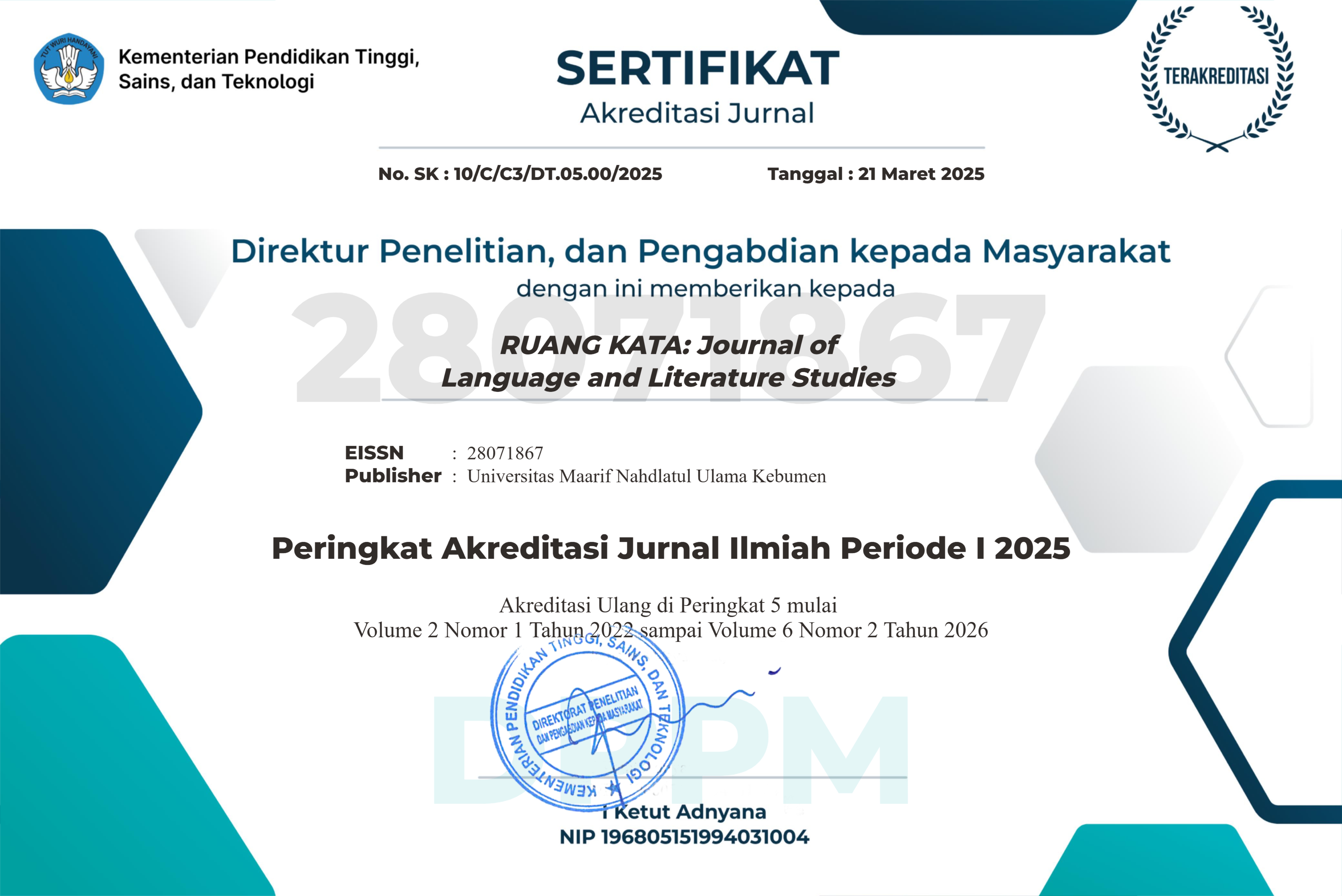EFEKTIVITAS MEDIA PEMBELAJARAN AUDIO VISUAL DALAM PEMBELAJARAN TEKS NARASI HASIL WAWANCARA DI SEKOLAH MENENGAH PERTAMA
DOI:
https://doi.org/10.53863/jrk.v1i01.194Keywords:
narrative text, interview text, process quality, Discovery Learning Model and audio visual mediaAbstract
This Class Action Research aims at : (1) improving quality of learning process on writing narrative text of interview result through the application of Discovery Learning with audio visual media and (2) improving the result of writing skills on narrative text of interview result through the application of discovery learning with audio visual media. This research conducted in two cycles each of which The data of this research are in the form of lesson plan, photos, results, students writing fieldnotes , list of values, and the results of the interview. The sources of the data include: the places and events, informants and documents. The technique of collecting data through observation/observation, review of documents, tests and interviews. Data validity has done through sources of data triangulation and method triangulation. Data analysis technique are using descriptive comparative and critic analysis. The result of the research showed that Discovery Learning models and audio visual media could improve students’ quality of learning process and writing skills on narrative text of interview from Cycle I to Cycle II. Those could be seen from (1) significant improvement of studens’ quality of learning process from cycle to cycle; (2) improvement of average of students’ score, from 54% in pre-cycle to 68% in Cycle I and 89% in Cylce II. The most effective steps of teaching-learning of writing skills on narrative text of interview result through the application of discovery learning with audio visual media were: (1) teacher grouped student in a small group; (2) teacher instructional video displays relating to the material; (3) students changed the text of the interview into a narrative text; (4) students transformed direct sentences into indirect sentences; (5) students create narrative framework; and (6) students individually writing narrative text of interview.
Downloads
Published
How to Cite
Issue
Section
License
Authors retain copyright and grant the journal right of first publication with the work simultaneously licensed under a Creative Commons Attribution-ShareAlike 4.0 International License that allows others to share the work with an acknowledgment of the work’s authorship and initial publication in this journal















